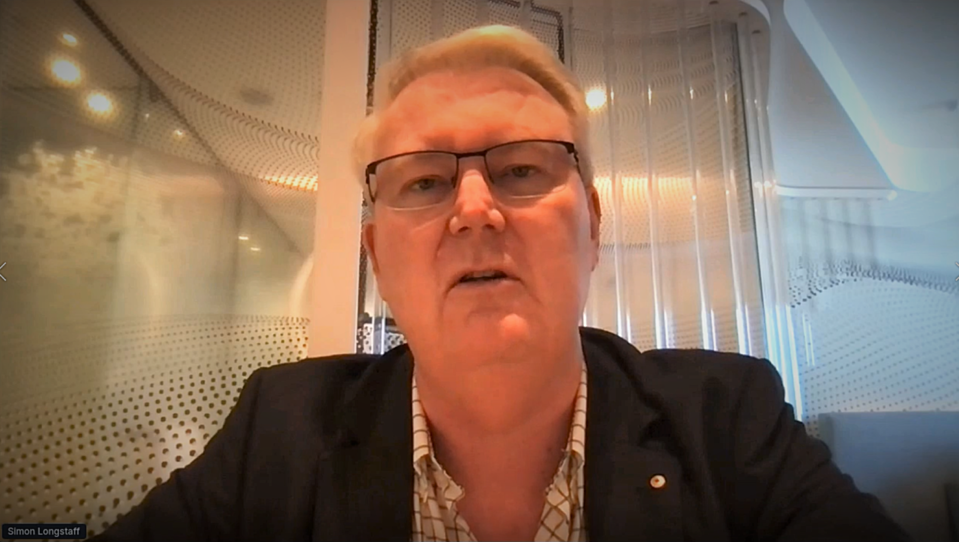
Grantmakers fine tune skills, nous and networks
Posted on 21 Aug 2019
Hundreds of Australia’s leading grantmakers have recharged their enthusiasm for one of the toughest…
Posted on 23 Mar 2021
By Matthew Schulz, journalist, Our Community
Hundreds of leading grantmakers have converged to reset their expectations about best-practice grantmaking, as 25 experts from Australia and New Zealand took to the virtual stage in the two-day Grantmaking Intelligence Conference, March 18-19.
Delayed nearly seven months by the pandemic, the event brought together practitioners from across government and philanthropy to tackle the huge challenges wrought by COVID-19, recent environmental disasters, and a fraught political environment for funders.
On Twitter, the event was tagged #grantnerds2021. While for some, “nerds” is a pejorative term, for these consummate professionals the label is one that is carried with pride.
Delegates lapped up presentations by data scientists, ethicists, regulators, Aboriginal and diversity leaders, and senior administrators across local, state and federal government.
There was something for every kind of grantmaker, with the virtual stages overflowing with technical knowhow and policy expertise.
SmartyGrants experts will continue to digest the results of the event and extract the most valuable lessons for Grants Management Intelligence readers over coming months.
In the meantime, here is a quick snapshot of highlights from the main event on day one, and the local and state/federal musters and SmartyGrants showcase on day two.
















Gallery pictures (L-R): SmartyGrants founder Denis Moriarty; Our Community director of innovation Sarah Barker; Innovation Lab data scientist; Nathan Mifsud; Conference facilitators Barry Smith and Fiona Dempster; Australian Small Business and Family Enterprise Ombudsman Craig Latham; Chuck Berger of Kimberley Community Legal Service; “Return to purpose” and “Big issues” panels hosted by Our Community chaos controller Kathy Richardson, State/Federal Muster host and SmartyGrants special projects director Joshua Presser; Teena Blewitt from the Department of Social Services; Chris Wheeler, consultant and former deputy NSW ombudsman; Dr Simon Longstaff from the Ethics Centre; SmartyGrants leaders in the “behind the curtain” session; Jeremy Kelshaw from the City of Sydney; Top conference contributor aka “Top Banana” Emily Costello; Presenters in the “Quick-fire grants” session and Local Government Muster host Jodie Shanks.
Our favourite moments included:
Conference co-facilitator and SmartyGrants strategic advisor Fiona Dempster said a common thread could be found in each speaker and delegate.
“All of them are responsible for being able to give money away in a sensible, defensible, reasonable way. It’s an important job: giving people money and selecting which people will get that money," she said.
“While it happens at all levels of government and in the philanthropic sector, the way they do it and what they are doing it for differs, but fundamentally, there are some basics that apply, and this is an opportunity to learn that from every sector.
“This conference gives them a chance to lift their sights away from the office for a moment to hear new and exciting ideas.”
She said that this year the live chat hosted on the conference platform proved an engaging substitute for the usual chatter during breaks, with delegates also able to post questions and take snap polls.
Perhaps appropriately it was delegate and a grantmaking newcomer from central Queensland who was crowned the “Top Banana” - the “most valuable contributor” to the event’s live chat.
Emily Costello, a community investment officer from Gladstone Regional Council, who was rewarded with free tickets to next year’s event, was among many eager to learn how to adapt to a quickly changing funding environment.
“This conference could not have come at a better time. I am in the midst of policy review and am gathering so much information for my toolkit. These are fantastic, informative sessions,” Ms Costello said.

Posted on 21 Aug 2019
Hundreds of Australia’s leading grantmakers have recharged their enthusiasm for one of the toughest…

Posted on 21 Sep 2018
Tailoring your communication style is critical if you want to connect with groups that are…

Posted on 08 Oct 2019
The Ian Potter Foundation is building a strong reputation for its laser-like focus on evaluation…

Posted on 17 Dec 2019
Having distributed more than $124 million worth of grants in the 2018-19 financial year, Equity…

Posted on 12 Aug 2019
A team of NSW Government grantmakers overseeing a heritage grants budget of around $3 million per…

Posted on 31 Mar 2021
SmartyGrants and Our Community founder Denis Moriarty says the grantmaking sector has failed to…

Posted on 31 Mar 2021
Grant programs have been in the news lately for all the wrong reasons, with government grant…

Posted on 31 Mar 2021
When a crisis hits, grantmakers must react quickly to ensure that money is sent where it is…

Posted on 31 Mar 2021
The push for charities to be more “business-like” has damaged the relationship between funders and…